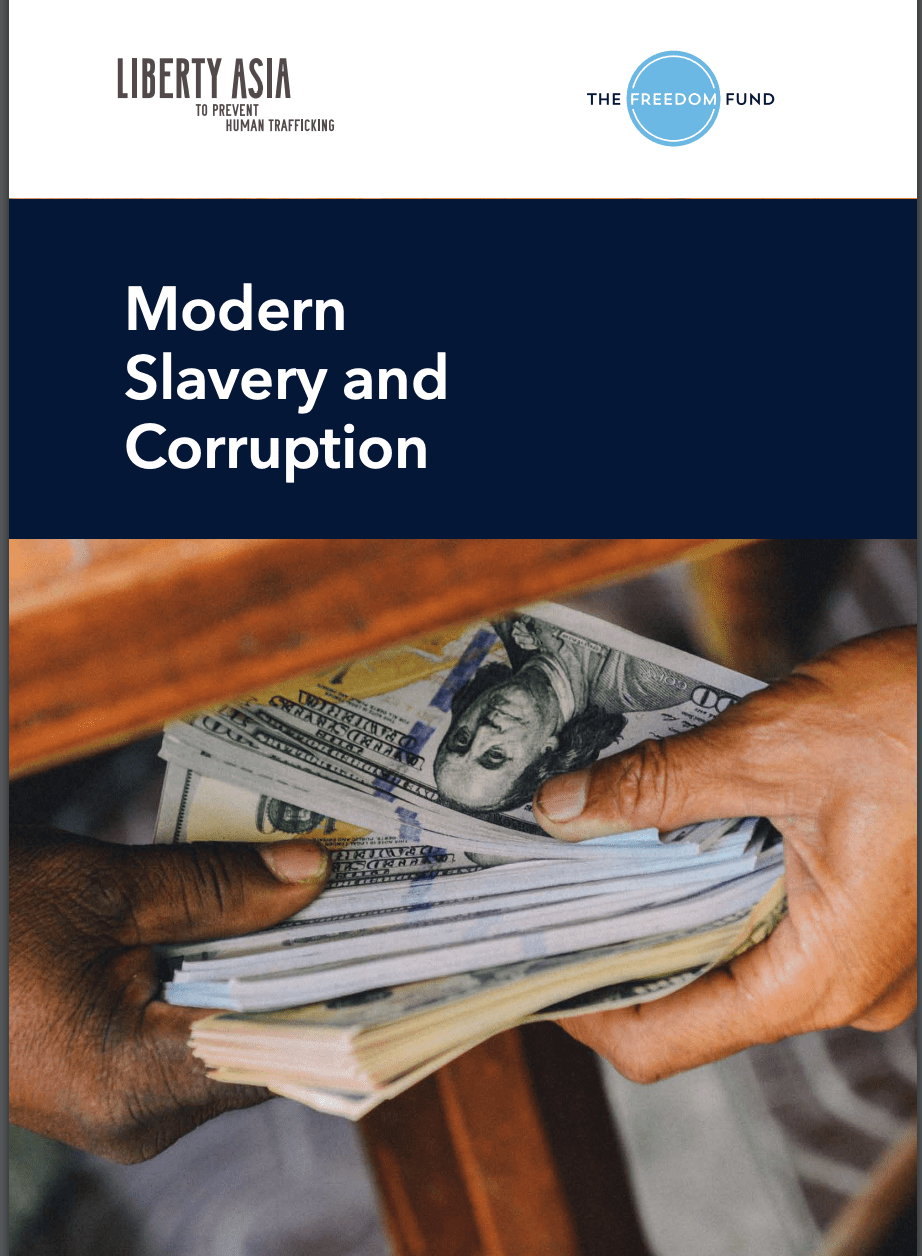
Modern Slavery and Corruption
Introduction Corruption is the power to turn a lie into a truth. It is the malicious instrument needed to sustain falsehoods, seize that which is undeserved and conceal favour in the guise of fairness.
To ensure people can work free from exploitation, rule of law, due process, transparency and accountability, and proper governance must be preeminent. Laws must require that commercial relationships and transactions be conducted in a manner that uphold these principles and be supported by the threat of effective enforcement leading to severe punishments on conviction.
Slavery and other forms of exploitation are facilitated and thrive by the use of corruption. For example, payments made to gain government approvals to build labour intensive infrastructure projects; extravagant entertainment provided to government officials and their families to win service contracts; incentives to local or national government officials to win clients for banking and investment services.
Organisations and those who manage them need to be held responsible for ensuring there are consistent and robust efforts within their daily activities to eliminate corruption from operations and practices. This requires transparent and accurate books and records, effective internal controls and comprehensive ongoing training for staff.
As we explore in this Briefing Paper, and examine more thoroughly in the Legal Analysis, the Foreign Corrupt Practices Act (“FCPA”) is, from the perspective of the anti-human trafficking community, that rare piece of legislation that creates criminal liability for corrupt action taken by certain substantial commercial organisations and their employees that directly facilitate and contribute to the occurrence of modern slavery in industry and business. In short, the FCPA:-
(i.) sets out simply what is prohibited (e.g. individuals and businesses are prohibited from bribing foreign government officials in order to obtain or retain business, and from knowingly falsifying a company’s books and records – see section titled “Elements of an FCPA Violation” in the Legal Analysis);
(ii.) creates obligations on global organisations, their subsidiaries and their respective management (e.g. all “issuers” of securities on a U.S. stock exchange as well as officers, directors, employees, or agents acting on behalf of those issuers – see section titled “The FCPA’s Extensive Reach” in the Legal Analysis);
(iii.) has extra-territorial reach;
(iv.) requires implementation of internal controls including training (e.g. requiring companies to implement an effective system of internal accounting controls – see section titled “Elements of the FCPA’s Accounting Provisions” in the Legal Analysis); and
(v.) has a history of enforcement and substantial penalties including severe fines and custodial sentences.
Of most importance, point (iii), is the extraterritorial reach which gives enforcement the powers to prosecute foreign and domestic companies operating overseas, as long as they are listed on a US exchange. While the FCPA was not drafted to address modern slavery, many NGO practitioners, especially those in anti-trafficking, can benefit greatly from understanding the FCPA’s reach, as many instances of trafficking are done on behalf or for the benefit of companies that are listed in the US.
Eliminating corruption from all stages of the value chain or life cycle of business relationships and transactions, by using the powers available under legislation like FCPA, can be a vital component in the fight to reduce the opportunity for and the occurrence of modern slavery.
Read more here.
